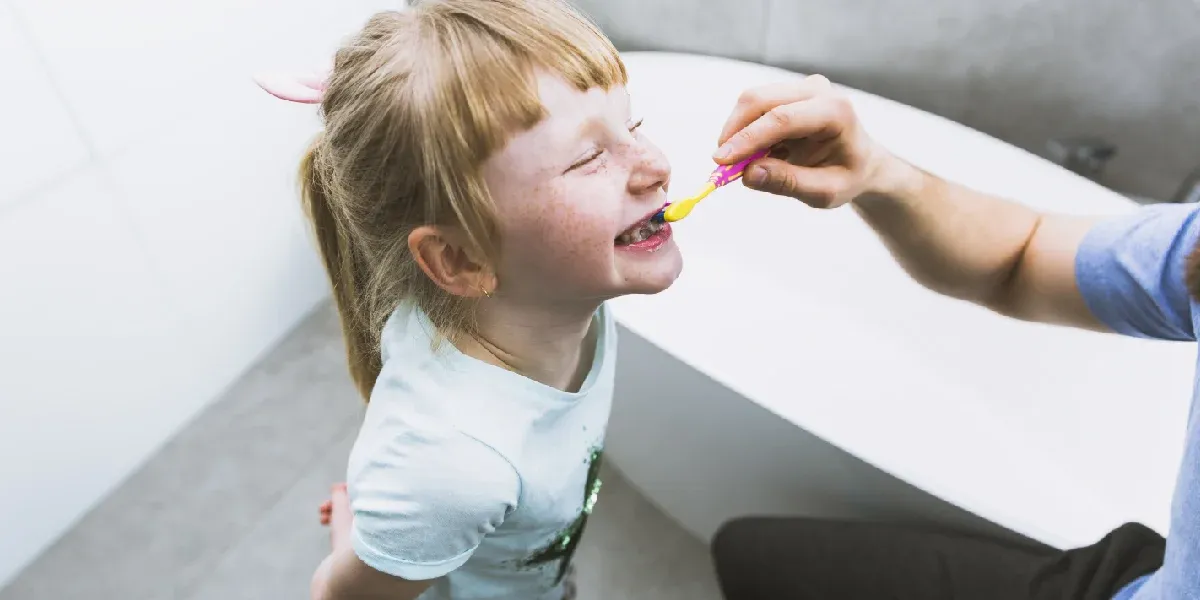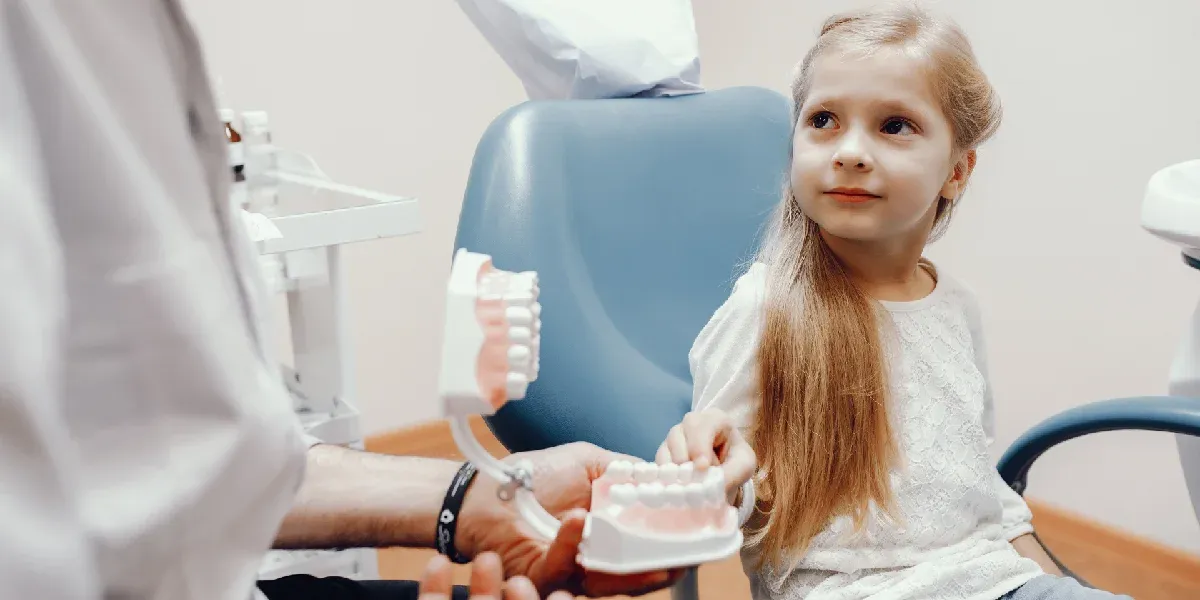
Preventing Gum Disease in Children: Tips for Parents and Caregivers
As parents and caregivers, we all want the best for our children, including keeping their smiles bright and healthy. While we often focus on preventing cavities, gum health is just as important, especially when preventing gum disease. Gum disease in children might not seem like a common concern, but it can lead to bigger dental problems down the road if not addressed early.
The good news is that gum disease is entirely preventable! With a few simple steps, you can help your child maintain healthy gums and set the foundation for a lifetime of great oral health. Let's look at easy, practical tips for keeping your child's gums in top shape.
Understanding Gum Disease in Children
You might think that gum disease is only a concern for adults, but kids are not immune! Gum disease can start as early as toddler years without proper care. The most common form in children is gingivitis, a mild inflammation of the gums that can lead to more serious conditions if left untreated.
According to the American Academy of Periodontology, nearly 50% of children show signs of early gum disease, like gingivitis, by the time they reach adolescence. This makes it necessary to catch and prevent gum problems early on.
What is Gum Disease?
Gum disease starts with plaque, a sticky film of bacteria that forms on the teeth and gums. If not cleaned away, plaque can harden into tartar, which irritates the gums and causes inflammation. The two main types of gum disease are:
- Gingivitis: The early, mild stage that can cause red, swollen gums and bleeding when brushing.
- Periodontitis: The more severe stage that can lead to gum recession and even tooth loss if not treated.
Signs to Watch for
Keep an eye out for these early signs of gum disease in your child:
- Red, swollen, or tender gums
- Bleeding gums, especially after brushing or flossing
- Persistent bad breath (even after brushing)
- Gums that seem to be pulling away from the teeth
The good news is that with proper oral hygiene, gingivitis is reversible! That's why teaching your child healthy habits from a young age is so important.
Importance of Good Oral Hygiene Habits
One of the most effective ways to prevent gum disease in children is by building strong oral hygiene habits. When established early, these habits avoid gum disease and keep your child's teeth healthy and cavity-free.
Brushing the Right Way
Children should brush their teeth twice a day for two minutes each time. But brushing isn't just about frequency; it's also about doing it correctly! Teach your child to brush using small, circular motions that cover the entire surface of each tooth and the gumline. This helps remove plaque before it can cause problems.
- Use a soft-bristled toothbrush and a pea-sized amount of fluoride toothpaste.
- Make sure to replace their toothbrush every three months or sooner if the bristles are wearing out.

The Power of Flossing
Did you know that brushing alone only cleans about 60% of the surface of teeth? Flossing is essential to cleaning the areas between teeth and along the gums where the toothbrush can't reach. You can start flossing your child's teeth as soon as two of their teeth touch. Make it a fun and rewarding experience, and encourage them to floss daily as they get older.
Kid-Friendly Tools
To make brushing and flossing more exciting, consider using kid-friendly dental tools like toothbrushes with their favorite characters or flavored toothpaste. Kids' electric toothbrushes can help ensure they brush thoroughly.
The Role of Dental Checkups in Gum Disease Prevention
Even with excellent brushing and flossing habits, regular dental checkups are essential to your child's oral health. Pediatric dentists are trained to spot the early signs of gum disease and provide professional cleanings that remove plaque and tartar in hard-to-reach areas.
The Importance of Early Dental Visits
The American Dental Association (ADA) recommends that children visit the dentist for the first time by age one or within six months of their first tooth appearing. Early visits help monitor gum health and make your child comfortable with dental visits, making them less likely to develop anxiety later on.
Don't Forget Fluoride Treatments
Fluoride is a mineral that helps strengthen tooth enamel and prevent decay. Your dentist may recommend fluoride treatments during visits to give your child's teeth extra protection. These treatments are beneficial for growing kids whose teeth are still developing.
Diet and Its Impact on Gum Health
What your child eats directly affects their gum health. A balanced diet can help strengthen their gums, while too much sugar can lead to plaque buildup, increasing the risk of gum disease.
Healthy Snacks for Strong Gums
Fruits and vegetables like apples and carrots naturally clean teeth and stimulate gums, while calcium-rich foods such as milk, yogurt, and cheese help protect teeth and gums.
Some gum-friendly snacks include:
- Leafy greens (spinach, kale)
- Dairy products (cheese, yogurt)
- Apples, carrots, and celery
The Effects of Sugar
Sugary foods and drinks create plaque that can irritate gums and cause inflammation. Limiting sugary treats and encouraging water intake can help reduce plaque buildup and protect gum health.
Focusing on a nutrient-rich diet and staying hydrated can help your child maintain healthy gums and prevent issues like gingivitis.
Managing Habits that Affect Gum Health
While seemingly harmless, certain habits can affect your child's gum health over time. Awareness and managing these habits early on can help prevent gum issues.
Thumb-Sucking and Pacifiers
While thumb-sucking and using pacifiers are common in young children, long-term use can affect gums and teeth development. It's best to encourage children to gradually stop by age 3 to avoid misalignment or gum irritation.

Mouth-Breathing
Children who breathe through their mouths, especially at night, may experience dry gums, increasing the risk of gum irritation. If your child frequently breathes through their mouth, consult a pediatric dentist or doctor to check for underlying issues like allergies or nasal blockages.
Teeth Grinding
Grinding teeth, often during sleep, can wear down tooth enamel and strain the gums. If you notice your child grinding their teeth, a dentist may recommend a custom mouthguard to protect their teeth and gums.
By helping your child break these habits early, you can ensure their gums stay healthy as they grow.
Taking a Proactive Approach to Gum Health
Preventing gum disease is all about being proactive. By encouraging good oral hygiene, making regular dental visits, and paying attention to diet and habits, you can help your child avoid gum disease and enjoy a lifetime of healthy smiles.
Stay Consistent
Consistency is key when it comes to oral care. Ensure your child brushes and flosses daily, attends regular dental checkups, and maintains a balanced diet. The habits formed now will lay the foundation for strong gums and teeth in the future.
Lead by Example
Children often imitate their parents, so leading by example is one of the best ways to instill good oral hygiene habits. Brush and floss with your child to make it a family routine, and show them that dental care is a lifelong priority.
You can make a big difference in your child's gum health and overall well-being by staying involved and taking small, consistent steps.
Contact your kids' dentist in Stockton, Dr. Sajjad Rizvi, D.D.S. at Happy Kids Dental, to know more about how to prevent gum disease in children.
Resource:
The Importance of Pediatric Dentistry: Why It Matters?
*This media/content or any other on this website does not prescribe, recommend, or prevent any treatment or procedure. Therefore, we highly recommend that you get the advice of a qualified dentist or other medical practitioners regarding your specific dental condition*
Subscribe To Our Newsletter
Get Updates And Learn From The Best


